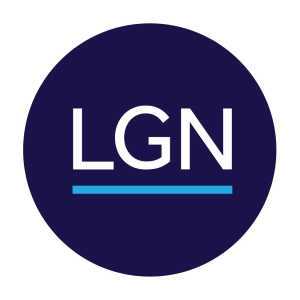Democrats Eye Further Direct Payments in Next Stimulus Round
Congressional Democrats are considering proposing a new round of direct cash payments to U.S. households and extending a similar benefit to the smallest businesses, as they struggle to get federal loans. Senator Ron Wyden (D-OR) and Representative Richard Neal (D-MA-01), the top Democrats on Congress’s two tax committees, want to include the payments in the next round of stimulus spending that Congress is likely to take up in May.
Their effort is likely to face objections from key Republicans, such as Majority Leader Mitch McConnell, who say they want to put the brakes on more deficit spending. But some GOP lawmakers have complained that small local businesses are getting shut out from small business aid. Long waits at state unemployment offices and high demand for the Paycheck Protection Program have left many people and small business owners unable to claim swift relief.
Senator Wyden’s plan, and a similar proposal in the House, would give small businesses up to $75,000 as they struggle with closures and drop-offs in economic activity. Those payments would be limited to companies with $1 million or less in revenue and up to 50 employees. The payment would be capped at 30% of the business’s gross receipts.
That provision is aimed and addressing a key criticism of the Paycheck Protection Program: that the smallest businesses aren’t able to claim the loans because banks are giving priority to larger eligible companies that have existing relationships with those institutions and generate larger fees.
HHS Stocking Up on Drugs at Risk of Shortage Due to Covid-19
The Department of Health and Human Services is spending $256 million to secure drugs and active pharmaceutical ingredients that are needed during the Covid-19 outbreak, according to the General Services Administration website. “Due to this outbreak, the supply chain for such items has been nearly depleted and oftentimes items must be sourced directly from the manufacturer or distributors with existing stock,” the HHS said in an official document.
HHS said it first plans to use pre-existing contracts with McKesson Corp. and LogMet to source pharmaceutical items, according to the GSA website. When those contracts run out of funds, the agency plans to spend up to $250 million to source drugs from Medline Industries Inc., AmerisourceBergen, Grainger, and Cardinal Health Inc.
The Food and Drug Administration has only announced one drug in shortage due to the pandemic, but didn’t specify the name. The FDA’s tracker of drug shortages includes about 100 drugs, but doesn’t specify if Covid-19 is the cause.
USDA Boosts Effort to Support Virus-Hit Meat, Poultry Producers
The U.S. Department of Agriculture announced it will establish a “coordination center” to help livestock and poultry producers hurt by coronavirus-induced meatpacking plant closures. The USDA’s Animal and Plant Health Inspection Service will offer “direct support to producers whose animals cannot move to market” and work with state veterinarians and other public officials “to help identify potential alternative markets” as plant shutdowns increase, according to a release posted on the agency’s website.
Senator Joni Ernst (R-IA) said the state’s pork industry, the nation’s largest, “is in dire straits” with producers facing “difficult and devastating decisions” about their livelihoods but that the USDA’s action was a good step. “With a system designed for just-in-time delivery, this important sector of our state’s economy has been turned on its head due to meat processing plant closures across Iowa, and the Midwest,” Senator Ernst said in a statement on Saturday.
Smithfield Foods Inc., the world’s top pork producer, said Friday it was closing its Illinois operations after some workers tested positive for Covid-19. The news came less than an hour after Hormel Foods said it was idling two of its Jennie-O turkey plants in Minnesota, and a day after Tyson said it was shutting its beef facility in Pasco, Washington.
CMS Suspends Doctors’ Loan Program in Favor of Relief Grants
Doctors’ offices, clinicians, and medical equipment suppliers now will receive emergency funds through the recent rescue packages approved by Congress rather than a loan program that requires them to repay the money within a year. The Centers for Medicare & Medicaid Services announced Sunday that it won’t accept applications for its Advance Payment Program, which is typically used to address cash flow issues for health providers other than hospitals when there is disruption in claims submission or claims processing.
CMS will continue to accept applications for loans for its companion program for hospitals, the Accelerated Payment Program, but will reevaluate new and pending requests in light of the direct grant payments already available through the agency’s Provider Relief Fund. Significant additional funding will continue to be available to hospitals and other healthcare providers through programs that don’t require repayments, CMS said.
Congress appropriated $175 billion for health-care providers in the last two aid packages. The Department of Health and Human Services has already distributed $30 billion to health providers and is in the process of allotting another $20 billion, with more grants anticipated soon.
Warning From FDA Deals New Blow to Hyped Covid-19 Therapy
The Food and Drug Administration warned of potential serious heart risks from malaria drugs touted by President Trump for Covid-19, becoming the latest U.S. agency to dial back hopes of a quick pharmaceutical solution to the coronavirus pandemic. President Trump has looked for off-the-shelf fixes to stem the pandemic’s risks to the U.S. and restart the economy, at times publicly discussing unproven or medically-unsound treatments.
The president has also been a proponent of giving coronavirus patients the antimalarial drugs chloroquine and hydroxychloroquine. Those medications emerged as possible treatments around the time a small and controversial French study showed early promise. The FDA said on Friday Covid-19 patients shouldn’t take the drugs unless they’re carefully monitored in a hospital or as part of a clinical trial. The advisory follows similar warnings from other major U.S. medical groups.
